The Cardio-Oncology Research Group brings together basic scientists from the Molecular Cardiology Research Institute (MCRI) with clinician-investigators from the Cardiology and Oncology Divisions at Tufts Medical Center and at the Cummings School of Veterinary Medicine at Tufts University along with scientists at Tufts University Schools of Medicine and Engineering and statisticians and population researchers in the Institute for Clinical Research and Health Policy Studies (ICRHPS) and the Clinical and Translational Sciences Institute (CTSI). Together, the goal of the Cardio-Oncology Research Group is to advance our understanding of genetic, biological and clinical factors that contribute to the cardiovascular side effects of cancer therapies, to identify biomarkers of toxicity that can be employed to improve clinical care and to determine therapies to mitigate the side effects of cancer treatment. The group uses a one-health approach to develop a cross-species platform that includes cellular and model organisms, canine cancer patients and human cancer patients to investigate novel mechanisms, biomarkers and therapies to improve cardiovascular outcomes in cancer patients.
Researchers
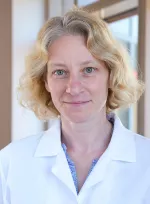
Relevant title(s)
- Cardio-Oncology Multidisciplinary Research Group Co-Leader
- Executive Director, Molecular Cardiology Research Institute (MCRI)
- Cardiologist, Tufts Medical Center
- Director, Vascular Biology Research Center within the MCRI
- Elisa Kent Mendelsohn Professor of Molecular Cardiology, TUSM
- Spring Board Tier 1 in Cardio-Oncology Principal Investigator
Research type
- Basic and Translational
Research interests and expertise relevant to cardio-oncology
For 2 decades, the Jaffe Laboratory has been exploring molecular mechanisms of common cardiovascular disorders including high blood pressure, atherosclerosis (the cause of heart attack and stroke), vascular remodeling after injury, vein graft failure, pulmonary hypertension and pre-eclampsia. For the past decade, we have been applying our expertise in blood vessel biology to understand the vascular complications of cancer therapies. This is relatively new as most cardio-oncology researchers thus far have focused on the impact of cancer drugs on the heart, not on the blood vessels. We use in vitro molecular techniques in human blood vessel cells, whole vessel studies of vascular contractile and relaxation function, global genomic, gene expression and proteomic techniques, and in vivo mouse models with state-of-the-art transgenic animals. The long-term goal is to identify novel biomarkers and therapies to identify, prevent and treat the vascular side effects of cancer treatment. We began with a systematic proteomic approach, treating human endothelial cells, the cells that line all blood vessels, with a range of cancer drugs. We are identifying phospho-proteomic profiles associated with the toxicity of many classes of cancer drugs. Thus far, we have identified new mechanisms driving heart attacks and strokes as a complication of BCR-ABL kinase inhibitors, tested the safety of new BCR-ABL inhibitors in this class, screened for drugs to protect blood vessels from high blood pressure caused by VEGF receptor inhibitors used for solid tumors and investigated biomarkers to track blood vessel side effects of these drugs. We are working with our colleagues in veterinary medicine and human cardiology and oncology to translate these findings into clinical trials in canine and human cancer patients.
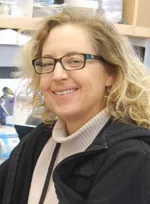
Relevant title(s)
- Cardio-Oncology Multidisciplinary Research Group Co-Leader
- Research Professor, Tufts Cummings School of Veterinary Medicine
- Research Professor, Tufts Medical Center
- Spring Board Tier 1 Cardio-Oncology Co-Investigator
Research type
- Comparative, Clinical and Translational
Research interests and expertise relevant to cardio-oncology
My work at the Cheryl London Lab bridges clinical and laboratory studies in comparative oncology, a field that brings together researchers from veterinary and human medicine to advance our understanding of cancer biology, as well as improve cancer treatment in both pets and people. I oversee studies of novel therapies and diagnostics in animals with naturally occurring cancer and other diseases, aiming to optimize cutting-edge approaches for pets before moving them into human trials. My research centers on the identification, validation and improvement of small molecule and immune modulatory treatment strategies for cancer.
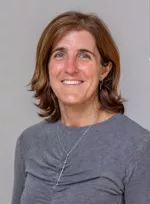
Relevant title(s)
- Kenneth and JoAnn G. Wellner Professor, Department of Immunology, TUSM
- Director, Immunology Graduate Program, Graduate School of Biomedical Sciences (GSBS)
- Assistant Dean for Faculty Development
- Spring Board Tier 1 Cardio-Oncology Co-Investigator
Research type
- Basic and Translational
Research interests and expertise relevant to cardio-oncology
The main goal of the Pilar Alcaide Lab is to understand the molecular and cellular mechanisms regulating T-cell immune responses in acute and chronic inflammation, and cancer, and how these can be modulated in therapeutically useful ways. In the past decade, my lab pioneered the emerging field of cardio-immunology, positioning T-cell-mediated inflammation as a dominant pathological contributor to the complex syndrome of heart failure. We have discovered distinct immune responses in different etiologies of Heart Failure. We recently discovered that doxorubicin, one of the most widely used anti-cancer drugs with known cardiotoxicity, does so through inducing specific cytotoxic T-cell responses. We have learned that T-cell immune responses that are beneficial for anti-tumor immunity are damaging to the heart and are currently focusing on understanding better how these can be targeted without compromising cardiac function and T-cell tumor killing.
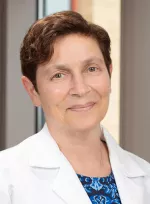
Relevant title(s)
- Director, Cancer Center, Tufts Medical Center
- Chief, Division of Hematology/Oncology
- Hematologist/Oncologist in the Breast Health Center
- Hematology/Oncology Fellowship Program Director
- Professor of Medicine and the Dr. Jane F. Desforges, MD
- Chair in Hematology/Oncology, Tufts University School of Medicine
- Professor of Genetics, Tufts University Graduate School of Biomedical Sciences
Research type
- Clinical
Research interests and expertise relevant to cardio-oncology
I am interested in breast cancer therapy, risk assessment and prevention. The Buchsbaum Laboratory is exploring the role of the tumor microenvironment in breast cancer biology, with a specific focus on how intra-cellular and inter-cellular signaling pathways are affected in the co-evolution of breast cancer and the breast cancer microenvironment. A major aim is translating our findings in the laboratory to the development of prognostic, predictive and therapeutic tools for the treatment of patients with breast cancer.
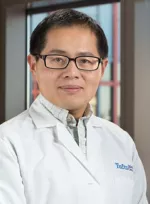
Relevant title(s)
- Investigator, Molecular Cardiology Research Institute
- Assistant Professor, Tufts University School of Medicine
Research type
- Basic and Translational Research
Research interests and expertise relevant to cardio-oncology
The Chen Laboratory aims to develop molecular imaging technology to investigate the molecular mechanisms of toxicity to the heart due to cancer therapy, specifically by directly imaging cell death and survival processes in the heart. My lab showed that a targeted nanoprobe sensitive to autophagy, a cellular response to stress conditions, can be multiplexed with apoptosis (programmed cell death) imaging to allow simultaneous detection and quantification in vivo. We discovered that impairment in cardiomyocyte autophagy after chemotherapy leads to increased cell death in the heart. Interestingly, autophagy stimulation by pharmacological means or by fasting restores basal autophagic activities, reduces cardiomyocyte death, enhances cardiac function and improves overall survival in mice. We continue to investigate the underlying molecular mechanisms to better predict the risk for heart damage with cancer treatment and to evaluate therapeutic interventions that will improve the cardiac outcomes in the millions of cancer patients undergoing chemotherapy.
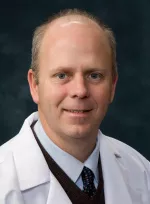
Relevant title(s)
- Investigator, Molecular Cardiology Research Institute (MCRI)
- Director, MCRI Center for Translational Genomics
- Director, MCRI biobank
- General Cardiologist, Tufts Medical Center
- Associate Professor of Medicine, TUSM
Research type
- Basic, Translational, and Clinical Genetics Research
Research interests and expertise relevant to cardio-oncology
The Huggins Laboratory is interested in uncovering the genetic regulators contributing to cardiomyopathy and heart failure. Specifically, on a clinical and basic research basis, we contribute to the genetic analysis of patients with cardiomyopathy and investigate the molecular mechanism(s) responsible for heart failure. In collaboration with MCRI and CVC investigators studying heart failure, we are interested in understanding how the heart responds to chemotherapy and how genetic factors may interact with treatment in a way that causes heart failure. We continue exploring the underlying mechanisms with the ultimate goal of developing personalized therapies that will prevent or reverse cardiomyopathy that is so devastating in heart failure patients, including cancer patients.
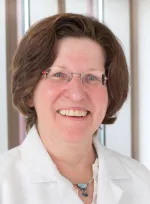
Relevant title(s)
- Founding Director, Reid R. Sacco Adolescent and Young Adult Program for Cancer and Hereditary Blood Diseases
- Director, The Center for Health Solutions at the Institute for Clinical Research and Health Policy Studies
- Professor, Tufts University School of Medicine
Research type
- Clinical and Translational
Research interests and expertise relevant to cardio-oncology
My primary research interests include the assessment of quality of life, functional impact and fiscal impact of chronic illness on children and their families with a focus on childhood cancer and HSCT. I am also actively involved in survey instrument and methodological design and interpretation and actively mentor health professionals in this field. I am the director of the program on Measurement, Outcomes and Statistics, of the Tufts-wide Cancer Center.

Relevant title(s)
- Principal Investigator, Molecular Cardiology Research Institute (MCRI)
- Professor of Medicine, TUSM
- Spring Board Tier 1 Cardio-Oncology Co-Investigator
Research type
- Basic and Translational Research
Research interests and expertise relevant to cardio-oncology
Research in the Pulakat Laboratory is focused on characterizing cardiovascular reparative signaling pathways that have the potential to repair cardiovascular damage arising either from chronic diseases (diabetes, obesity), or drug treatments (such as chemotherapy). We reported that angiotensin II type 2 receptor (AT2R), which promotes anti-inflammatory signaling is part of the cardiac signature that defines cardiac structural and functional integrity in female diabetic rats. We also showed that AT2R directly interacts with ErbB2 (a molecule implicated in cardiovascular protection as well as in promoting aggressive breast cancer and many other cancer types, including ovarian, stomach, bladder, salivary and lung carcinomas), indicating the potential of AT2R to regulate ErbB2 signaling. Moreover, we found that AT2R increased the expression of neuro-protective and proliferative marker MCL-1, yet suppressed human breast cancer cell growth. Based on our observations (both published and preliminary), we think that increasing AT2R expression and activation can be cardiovascular and neural protective and will attenuate cardiac and brain damage caused by diabetes and/or chemotherapy. In collaboration with industry, we study the protective effects of new AT2R agonists that increase AT2R expression and signaling in human and murine cardiovascular cells and the inhibitory effects of these drugs on human cancer cell growth. We use cell culturing and animal models for diabetes, cancer and chemotherapy-induced cardiotoxicity, combined with genomics, proteomics and bioinformatics approaches to define changes in cardio-protective molecular signature in response to diabetes and drug treatments. Our ultimate goal is to develop new treatment paradigms to mitigate myocardial structural damage (fibrosis, scarring) resulting from metabolic diseases and cardiotoxic drug treatments, and determine whether AT2R peptide agonists are effective in the treatment of diabetes- and chemotherapy-associated cardiac damage in children and adults.
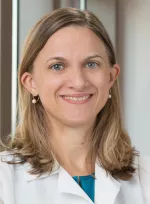
Relevant title(s)
- Medical Director, Cardio-Oncology Program, Tufts Medical Center
- Associate Professor of Medicine, Tufts University School of Medicine
Research type
- Clinical, Translational and Outcome Research
Research interests and expertise relevant to cardio-oncology
My research program seeks to understand the clinical predictors of cardiovascular disease in cancer patients and design clinical trials to improve outcomes in patients with cancer who are receiving potentially cardiotoxic cancer treatment. I am the medical director of the TMC Cardio-Oncology Program with extensive clinical expertise in the management of cardiovascular disease in patients with cancer. I lead an independent clinical, translational and outcomes research program that focuses on applying modern predictive analytics in heart failure and cardio-oncology, understanding mechanisms and predictors of cancer therapy-mediated cardiotoxicity, and designing and participating in clinical trials of interventions to improve cardiovascular outcomes in patients with cancer.
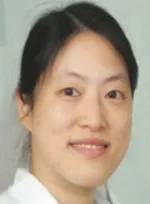
Relevant title(s)
- Research Assistant Professor, Tufts University, Cummings School of Veterinary Medicine
- Veterinary Cardiologist
- Spring Board Tier 1 Cardio-Oncology Co-Investigator
Research type
- Basic and Translational Research
Research interests and expertise relevant to cardio-oncology
My main research interest at the Yang Laboratory includes non-ischemic cardiac diseases in veterinary patients, including myxomatous mitral valve disease (MVP) and cardiotoxicity secondary to anti-cancer therapy. Because of the similarities between many veterinary and human cardiac disorders, I am particularly interested in the translational and comparative utility of veterinary patients for human diseases. For example, dogs develop nearly identical cardiac responses to the most common anti-cancer agents, including doxorubicin and, as we recently showed, for VEGF receptor inhibitors. My laboratory is specifically interested in understanding how extracellular vesicle-associated non-coding RNAs contribute to cardiovascular injury secondary to anti-cancer therapy. We are also interested in evaluating their potential as novel biomarkers and therapeutic targets.
Trainees
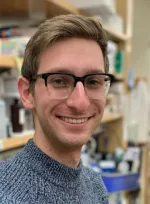
- MD/PhD Candidate in the lab of Dr. Pilar Alcaide, Department of Immunology, Tufts Graduate School of Biomedical Sciences
Research type
- Basic and Translational Research
Research interests and expertise relevant to cardio-oncology
My research aims to study novel mechanisms, biomarkers and therapeutic strategies for cardiotoxic chemotherapeutic agents by studying the cardiac inflammatory response. My focus is on anthracycline cardiotoxicity, in which I have outlined a novel cardiac T-cell immune response as a component of cardiotoxicity. I use mouse models of anthracycline cardiotoxicity as well as primary immune and cardiac stromal cell culture to understand the direct effects of anthracyclines on cardiac function, cardiac inflammation and cellular function. We also work with collaborators to profile the inflammatory response in patients treated with anthracyclines. The skills that I have learned during this project will allow me to pursue my future goal of becoming an independent physician scientist in the field of cardio-oncology using my training in immunology to pursue basic and translational science in cardio-immunology.
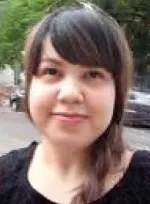
- Postdoctoral fellow in the Chen Laboratory, MCRI, Tufts Medical Center
Research type
- Basic and Translational Research
Research interests and expertise relevant to cardio-oncology
Homeostasis pathways play a central role in the response of cardiomyocytes to cardiotoxic stress. Dr. Boukhalfa in the Chen lab focuses specifically on the role of autophagy, a cellular homeostasis process that degrades intracellular stressors for recycling and enhances cardiomyocyte viability during stress. Combining autophagy imaging technology and molecular biology approaches in cellular, tissue and whole animal mouse studies, we demonstrated that autophagy is perturbed by cardiotoxic cancer drugs. Moreover, the acute activation of autophagy restores beneficial autophagy to the homeostatic levels, restores mitochondrial energetics and prevents cardiomyocytes from undergoing cell death. In collaboration, we also investigate the translational potential of autophagy modulation to treat cancer therapy-induced cardiotoxicity in large animal models. By understanding the beneficial mechanisms of autophagy modulation that are conserved across phylogeny, we aim to develop novel therapeutic strategies to benefit cancer patients and survivors of cardiovascular disease.

- MD/PhD Candidate in the Jaffe Laboratory, Tufts Medical Center
Research type
- Basic and Translational Research
Research interests and expertise relevant to cardio-oncology
My PhD thesis research focuses on utilizing phosphor-proteomic profiling as well as a cross-species platform consisting of in-vitro and in-vivo mouse models and a canine cancer patient clinical trial to investigate novel mitigating strategies for vascular endothelial growth factor receptor inhibitor (VEGFRi)-induced toxicity, specifically endothelial cell dysfunction and hypertension. Over the course of my PhD in vascular cardio-oncology, I am developing experience across the spectrum of in-vitro, in-vivo and in-silico modes of scientific investigation to identify biomarkers and therapies that may prevent and treat the vascular side effects of VEGFRi cancer treatments. The skills I’ve learned throughout this experience are highly transferable with applications across disease systems and classes of cancer therapies, which is in line with my goal of becoming a physician-scientist working at the intersection of multiple disciplines to care for complex patients and improve human health.
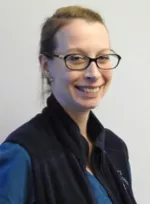
- Clinical Trials Veterinary Technician, Clinical Trials Office at Cummings Veterinary Medical Center
Research type
- Clinical
Research interests and expertise relevant to cardio-oncology
I am dedicated to promoting animal health and advancing the science of diagnosing, treating and preventing animal diseases. I am involved in clinical and laboratory studies in comparative oncology, a field that brings together researchers from veterinary and human medicine to advance our understanding of cancer biology, as well as improve cancer treatment in both pets and people.
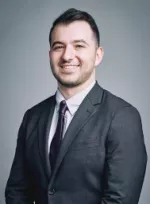
- MD/PhD Candidate in the Jaffe Laboratory, Tufts Medical Center
Research type
- Basic and Translational Research
Research interests and expertise relevant to cardio-oncology
I am a physician-scientist candidate with training in vascular biology and neuroscience. As a member of Iris Jaffe’s laboratory, I employ in vitro and in vivo approaches to develop mitigating strategies for chemotherapy-induced vascular toxicity, which can result in a higher risk of premature heart attack and stroke in cancer survivors. I am developing expertise with molecular biology techniques and in vivo imaging modalities, including intravital microscopy, to examine the effects of cancer drugs on vascular inflammation in real-time. We have developed and employ a novel LC/MS monitoring strategy to appropriate dose mice with human chemotherapy agents such that all our in vivo studies accurately model human exposure. Our long-term goal is to use findings from these mechanistic studies of drug-induced vascular toxicity to devise novel vascular protective strategies that may protect future patients.
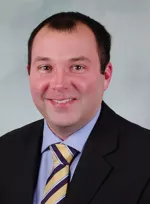
- Hematology/Oncology Fellow
- Postdoctoral Research Fellow: Jaffe Laboratory
Research type
- Basic and Translational Research
Research interests and expertise relevant to cardio-oncology
My goal is to be a translational researcher aimed at improving the prevention and treatment of cancer-related thrombosis (blood clots) by nominating and testing novel biomarkers to predict thrombotic risk and develop novel therapies to treat thrombosis in cancer patients, whether their thrombosis is due to cancer itself or to the therapies we administer. I use in vitro assays, animal models of thrombosis and ex vivo imaging of human blood flow in engineered blood vessels to study mechanisms of thrombosis and develop therapies to prevent thrombosis with less risk of bleeding than current therapeutics.

- PhD Immunology candidate in the lab of Dr. Pilar Alcaide, Tufts University School of Medicine
Research type
- Basic Science Research
Research interests and expertise relevant to cardio-oncology
My PhD thesis work and interests focus on exploring the molecular mechanisms underpinning Doxorubicin cardiotoxicity. Utilizing in vitro and in vivo approaches, I aim to assess the cardiac fibroblast and T cell crosstalk in chemotherapy-induced heart failure and investigate novel strategies to mitigate cardiac damage induced by Doxorubicin. The expanding skills and techniques I learn throughout my PhD experience fall in line with my ultimate goal of becoming an independent and collaborative scientist to improve human health.